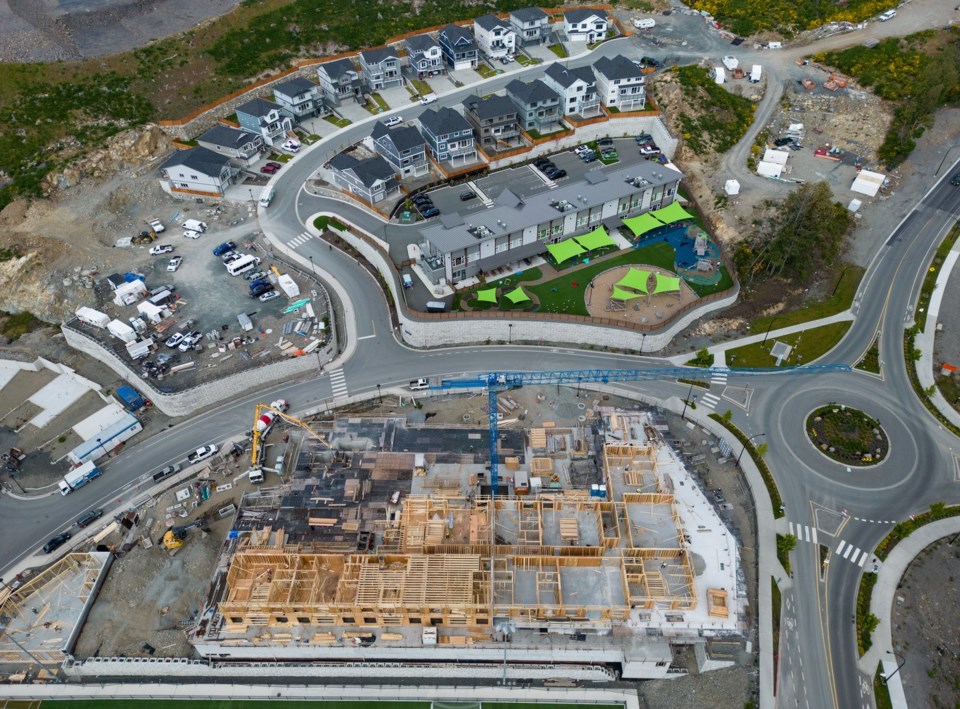Rental housing construction in Canada has picked up significantly and is expected to keep growing this year, according to a new RBC report.
However, the report says more supply is needed to fill the backlog of demand.
RBC economist Rachel Battaglia said rental housing starts reached their highest levels in decades in 2022 and 2023, with more than 80,000 new units started each year.
That number is set to rise even more this year thanks to surging demand, as well as new policy measures helping tip the scale for developers despite their challenges with inflation and labour, Battaglia wrote in a report published Wednesday.
Rapid population growth thanks to immigration and interprovincial migration are pushing demand higher, she said in an interview.
"We're also seeing a shift to rental housing in general in Canada. It's been happening since 2011, with more baby boomers entering the rental market and cost pressures keeping home ownership out of reach for a growing number of Canadians," said Battaglia.
Housing starts are already up 11 per cent from last year, the report said, with anticipated interest rate cuts from the Bank of Canada set to keep that trend on track.
Most homebuilding activity comes from new rental construction projects, which have nearly doubled from six years ago, Battaglia wrote in the report, while the construction of single-family homes has " dwindled to just three-quarters of the housing start activity seen in 2017."
A severe imbalance in rental housing supply and demand has caused rent prices to soar, the report said, with annual rent growth in 2023 outpacing both inflation and wage growth. The rate of home ownership has fallen since it peaked in 2011 as homes have skyrocketed in value.
The rental market has been "exceptionally tight," said Battaglia, with the rental vacancy rate falling to an all-time low of 1.5 per cent last year. That's well below the three-per-cent rate that would signal a more balanced rental market, she added.
"If you boost that supply ... we're hoping to see a little bit of a rebalancing in the rental market there," Battaglia said.
"But there is this backlog that we have to account for. Because over the last few years, new rental demand well surpassed additions to the purpose-built rental stock, which means that that gap has been growing."
Demand for rentals increased more than three times faster than the purpose-built rental stock grew between 2017 and 2023, she said in the report, while secondary suites and condo apartments have only filled part of the gap.
"If we look at vacancy rates in the secondary rental market, those vacancies are even lower than in the primary market, which suggests that Canada's secondary rental market is very limited in its capacity to absorb new rental demand," said Battaglia.
Governments at all levels have responded to the imbalance with rule changes and incentives to promote high density and rental housing construction, especially over the past five to seven years, Battaglia said.
The federal government's National Housing Strategy in 2017 was "pretty pivotal," she said, and the more recent housing plan helps continue that work.
Provinces like Ontario and B.C. have made moves of their own, while municipalities like Vancouver and Toronto — the most expensive major cities in the country — have also taken steps to expand their social housing stock and encourage rental construction projects, the report said.
Strong demand for rental housing combined with government support have contributed to a significant uptick in rental construction, even as most other types of development projects are at a standstill, wrote Battaglia in the report, adding that policies in Canada's latest housing plan are expected to help carry the momentum forward.
This report by The Canadian Press was first published July 3, 2024.
Rosa Saba, The Canadian Press




